"Safe and Effective": Severe Hair Loss Due to COVID-19 Vaccine Reaction. 5 Ways to Enhance Immunity
Research indicates a growing number of cases worldwide reporting hair loss following the SARS-CoV-2 vaccination.
One-time or recurring donations can be made through Ko-Fi:
By Ellen Wan September 8, 2023
As COVID-19 vaccination rates continue to rise, both common and rare vaccine-related side effects are coming to light. Research indicates a growing number of cases worldwide reporting hair loss following the SARS-CoV-2 vaccination.
After receiving the Moderna vaccine, Ms. Chen, a woman in her 40s from New Taipei City, Taiwan, experienced severe hair loss, resulting in complete baldness. Upon reviewing her medical records and relevant test results, the Taiwanese government compensated her with 30,000 New Taiwan dollars (around 940 USD).
Ms. Chen’s case is documented in the meeting records (pdf) of Taiwan’s Ministry of Health and Welfare’s Vaccine Injury Compensation Program (VICP), held on July 27. On that day, VICP reviewed a total of 150 cases related to vaccines, with 23 cases approved for compensation. These included 10 cases linked to the Pfizer/BioNTech (BNT) vaccine, eight cases linked to the AstraZeneca vaccine, one to the Moderna vaccine, and four to the Sinopharm vaccine. The compensation amounts ranged from 5,000 to 30,000 New Taiwan dollars (around 160 to 940 USD).
A man in his 30s in Tokyo, Japan, with originally thick hair, experienced gradual hair loss and eventually became partially bald after receiving the Moderna vaccine. He received his first dose of the Moderna vaccine on July 9, 2021, and three days later, he began losing hair. After consulting with a doctor, he was informed that his hair loss condition would likely improve in approximately six months. Considering the risks posed by the virus, he decided to receive the second dose of the Moderna vaccine on Aug. 10, 2021.
Unfortunately, his hair loss continued to worsen. By September 2021, he had lost more than half of his hair, and just over four months after the initial vaccine dose, he was nearly completely bald. The man documented this hair loss process through photographs and shared it on social media.
In September 2021, he visited a major hospital in Japan for a checkup. The results showed elevated anti-TPO antibody levels and slightly reduced thyroid blood flow, resulting in a diagnosis of chronic thyroiditis. The doctor assured him that his hair loss was unrelated to the vaccine and that there was no connection between the two. However, he expressed his belief: “In my view, the reduced thyroid blood flow and compromised function are likely vaccine-related. I’ve never had thyroid issues in my annual health checkups, and no one in my family has had chronic thyroiditis. Moreover, numerous COVID-19 vaccine side effects are related to the blood, making it hard for me to believe the vaccine had no impact.”
The man shared a photo in August, revealing that his hair had started to regrow unevenly, but the patchy baldness persisted.
According to a Thai media report, a 19-year-old student in Phuket received his second dose of the Sinovac vaccine on July 16, 2021. Three days later, his hair began falling out in clumps. Upon waking up one morning, he discovered a significant amount of hair had fallen out, covering his pillow. Subsequently, the hair loss nearly left him completely bald.
After diagnosis, the doctor explained that it was a vaccine side effect, as it had triggered a reaction with his white blood cells, resulting in a compromised immune function.
In 2022, the International Journal of Dermatology published a case report about an 80-year-old man seeking medical attention seven days after receiving his first Pfizer/BioNTech (BNT162b2) vaccine dose due to rapid facial hair loss. The patient experienced patchy beard loss on his left cheek and upper lip and similar symptoms on his entire scalp. The diagnosis was alopecia areata, but topical treatments showed no improvement. The patient reported a progressive worsening of hair loss after receiving the second vaccine dose, leading to complete baldness in just two months. Even after one month of topical immunotherapy using squaric acid dibutylester and 5 percent minoxidil, there was no improvement.
Before the vaccination, the patient had no personal or family history of hair loss or autoimmune diseases. COVID-19 serological test and naso-oropharyngeal swab results were all negative.
The report suggested that the timing of the case indicates a potential connection between the Pfizer/BioNTech vaccine and the onset of widespread alopecia (hair loss), corroborating that the administered vaccine can trigger an autoimmune response in predisposed individuals. Specifically, the first dose of the vaccine may have initiated an autoimmune response, while the second dose, administered to an already sensitized immune system, could have potentially boosted the autoimmune attack on the hair bulb, resulting in a significant worsening of the condition.
In a case report published in the Journal of the American Academy of Dermatology Case Reports in 2022, researchers mentioned that retrieval of data from the U.S. Centers for Disease Control and Prevention (CDC) Vaccine Adverse Event Reporting System (VAERS) database showed that as of February 2022, there were 915 cases of alopecia, 67 cases of alopecia areata, one case of alopecia totalis (complete hair loss of the scalp), and eight cases of alopecia universalis (total hair loss on the scalp and the body), all associated with Pfizer or Moderna vaccines. Patients with a personal or family history of alopecia areata or other autoimmune diseases, especially thyroid dysfunction, may face a higher risk of hair loss after receiving SARS-CoV-2 vaccines.
The report suggested that physicians should increase clinical suspicion of SARS-CoV-2 vaccine-induced alopecia in patients who were vaccinated one to two months earlier, after ruling out other possible triggering factors.
Alopecia is a T-cell-mediated autoimmune disease characterized by hair loss due to an inflammatory response against hair follicles. The report mentioned that Moderna and Pfizer vaccines can trigger T-cell-mediated immune responses, thus leading to hair loss.
Chia-Ling Wang, a pharmacist from Show Chwan Memorial Hospital in Taiwan, noted in her Journal of Taiwan Pharmacy paper that there are currently no approved medications for treating alopecia. Existing treatment options include oral, topical, and local steroid applications, but their effectiveness varies and may come with significant side effects. As a result, the outcomes are often disappointing.
So how can we minimize the side effects that occur after vaccination? Dr. Yuhong Dong, a European virology and infectious disease expert and a pharmacovigilance leader of a biotechnology company, explained in “Health 1+1” that many diseases, including various adverse reactions, are linked to an imbalance in the body’s immune system. For instance, when dealing with the COVID-19 virus, the initial step of specific immunity involves fully activating T-helper cells, leading to the production of TH1 cells, which are responsible for directly eliminating virus-infected cells.
Additionally, there is another type of cell called TH2 cells, primarily tasked with assisting in B-cell activation for antibody production and cytokine secretion. It is important to note that the number of these cells should be appropriate rather than excessive. This balanced state of specific immunity, where TH1 cells dominate with support from TH2 cells, represents the optimal antiviral immune response.
How to Maintain a Healthy Immune System
Dr. Dong recommends the following methods for maintaining a healthy immune system:
Firstly, our mental state can influence the immune system; it acts as the commander of the body, controlling immune cells through the peripheral nervous system. To minimize adverse reactions after vaccination, it is crucial to maintain a positive mindset and a relaxed mood, as stress and pressure can suppress the immune system. Therefore, avoid getting vaccinated when feeling mentally unwell, such as when fatigued, experiencing depression, or having mood swings.
Avoid taking certain medications that can affect the immune system, such as nonsteroidal anti-inflammatory drugs (NSAIDs), including ibuprofen, naproxen, and aspirin-containing medicines. While these drugs effectively relieve fever and pain symptoms, they can also reduce the production of antibodies in response to viral infections. Therefore, individuals infected with a virus and those planning to get vaccinated should refrain from using these drugs.
People with allergies should avoid taking antihistamines as a preventive measure. These medications suppress the function and activity of the body’s lymphocytes (a type of immune cell), which, in turn, affects the production of antibodies. Allergies, particularly severe reactions, cannot be prevented, and taking these medications is futile. For individuals with allergies, it is advisable to opt for natural, fresh foods and avoid certain fermented or cured meats, as these foods can lead to the production of histamine. When histamine levels in the body are elevated, receiving a vaccine might immediately trigger allergy-like reactions.
Limit alcohol consumption, as it can be detrimental to the body’s immune cells, causing damage to lymphocytes.
5. Ensure adequate and high-quality sleep. Two essential hormones in our body, namely growth hormone and melatonin, serve as natural healers for the immune system. During sleep, the body naturally releases these hormones, aiding in the repair of lymphocyte function and maintaining a balanced state in the body.
Source: theepochtimes.com
Related articles:
FOI Request Reveals a List of Adverse Events Following COVID-19 Vaccination in Canada
Penis Injury from the Shot: "It's Very Disturbing"
FRIGHTENING: Psychosis Following COVID-19 Vaccination
FRIGHTENING: Leprosy Following COVID-19 Vaccination
FRIGHTENING: Ballooning of the Heart Following COVID-19 Vaccination
This Is What Total Destruction of the Immune System by mRNA Nanoparticle Bioweapon Looks Like…
PREMEDITATED MASS MURDER: Alarming Data From Canada and Vaccines Batch Scandal
CV19 Bioweapon Vax is Not Genocide, It’s Extinction – Karen Kingston





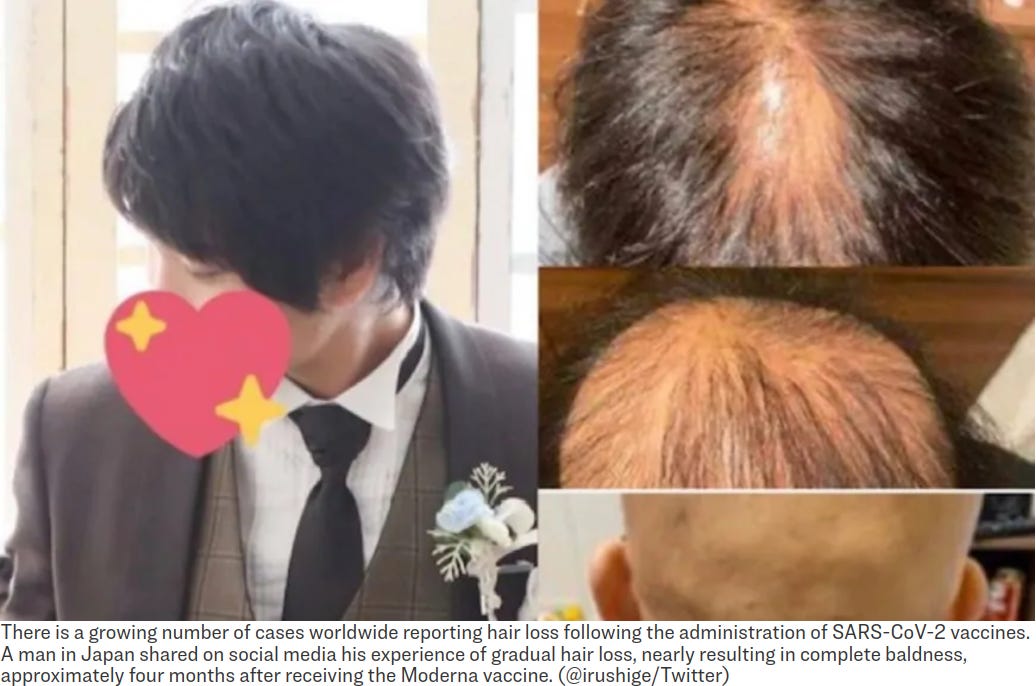
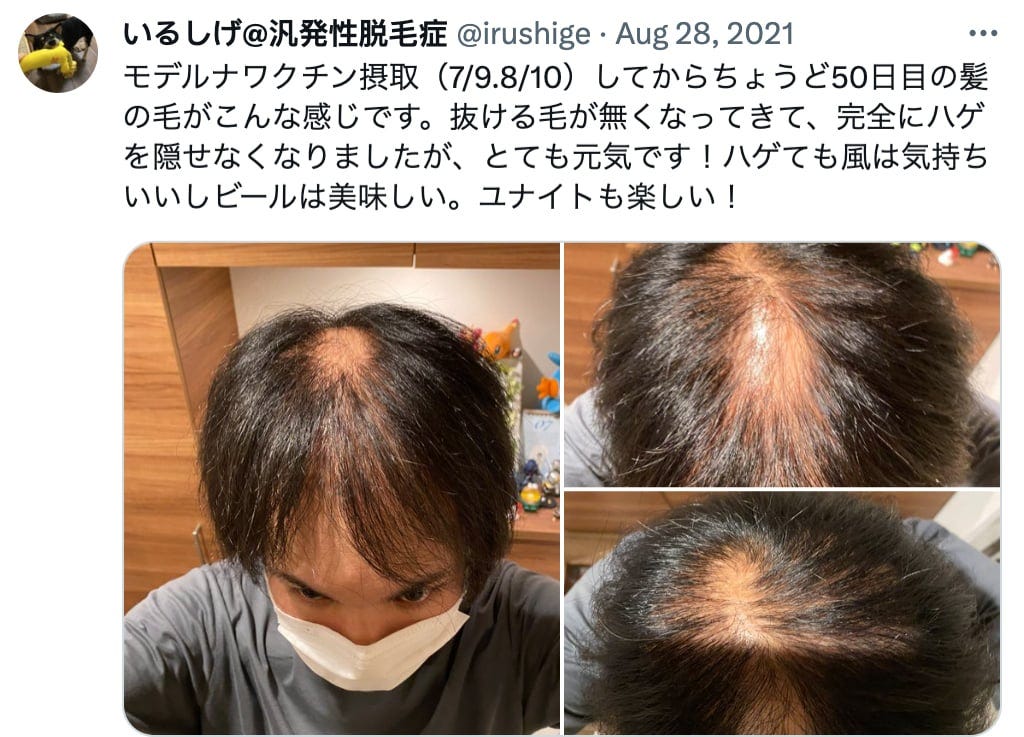
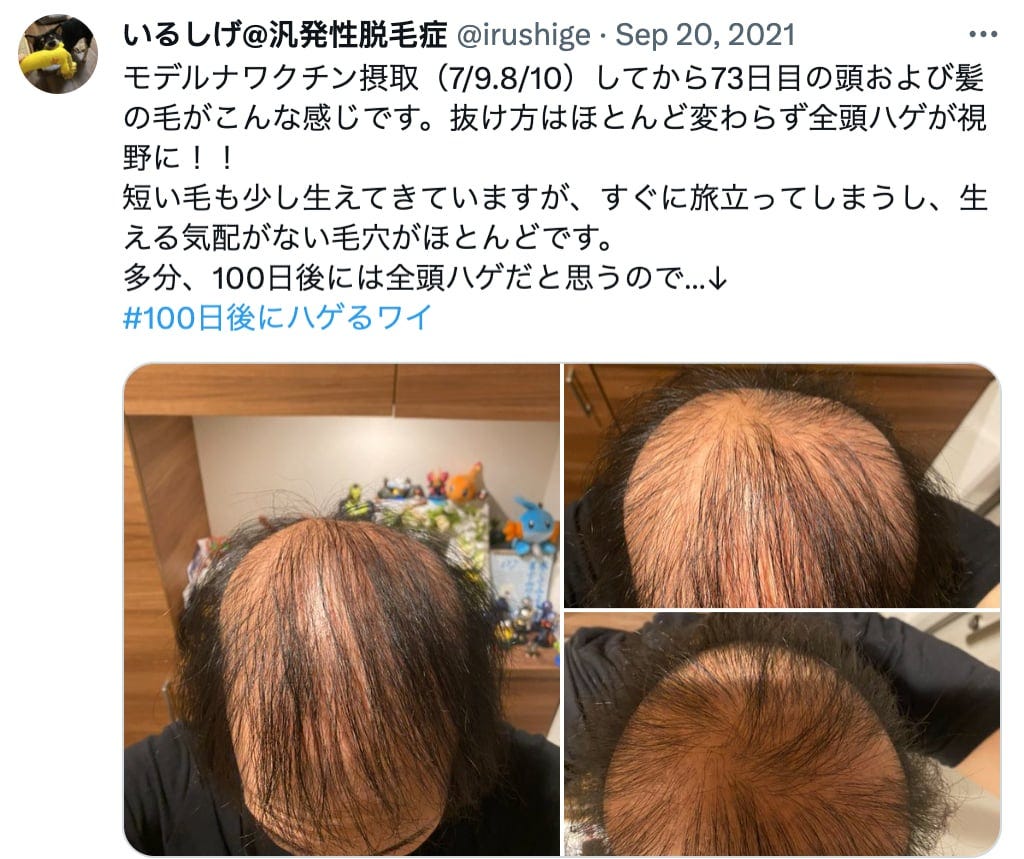
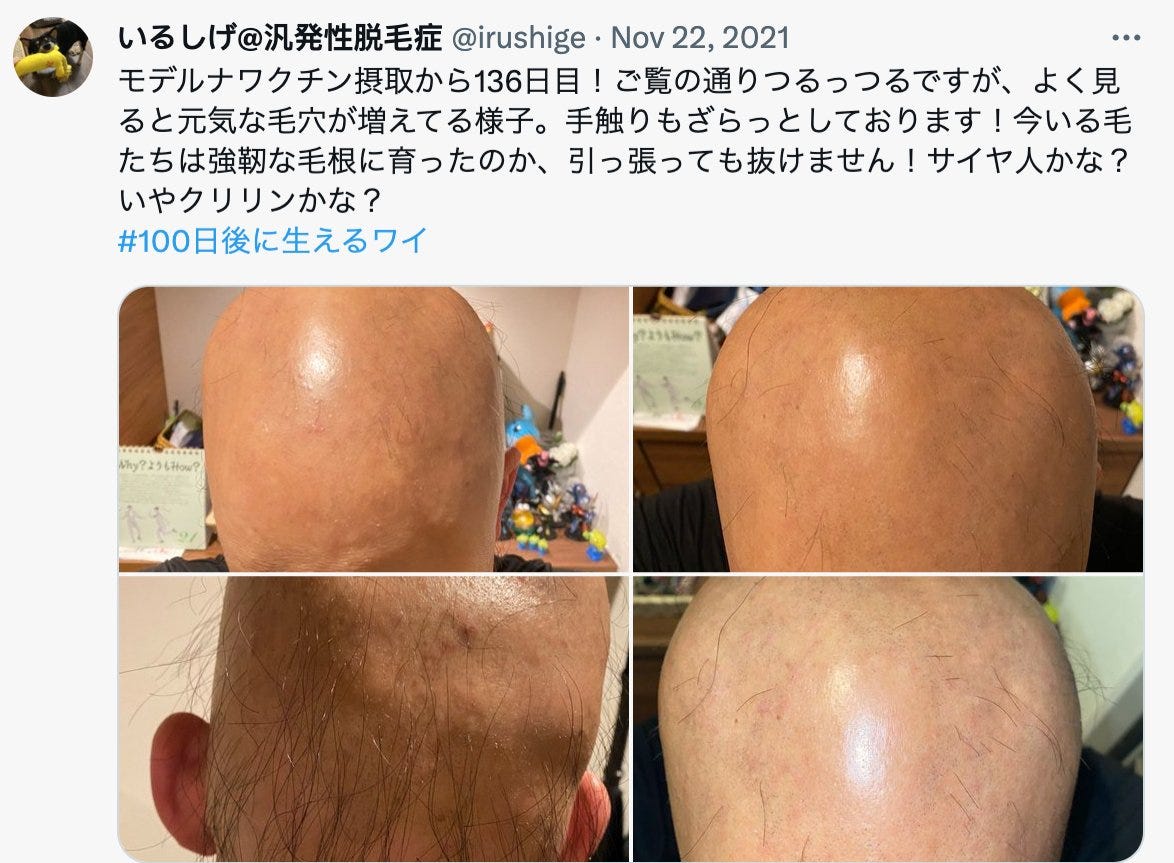
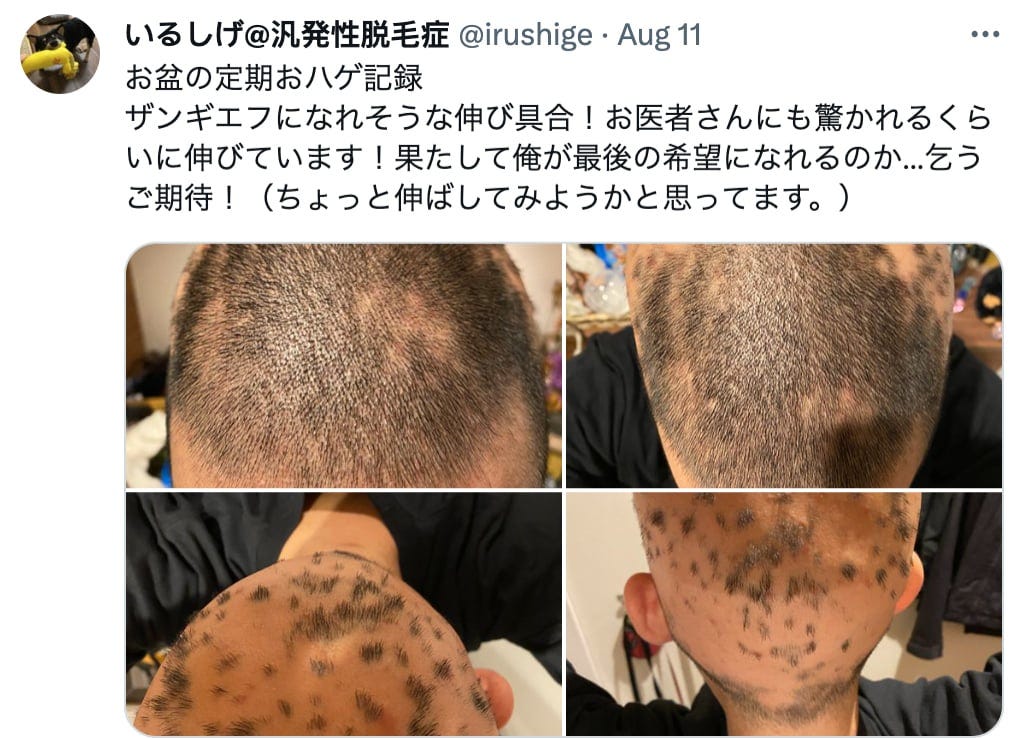
Well... I’m dealing with it FROM SHEDDING! I’m a “hold out” FOREVER when it comes to the cv vax. But the hair loss is REAL from shedding.
Even day I read a new story about new diseases from the jabs, every day I thank God for protecting me from evil.